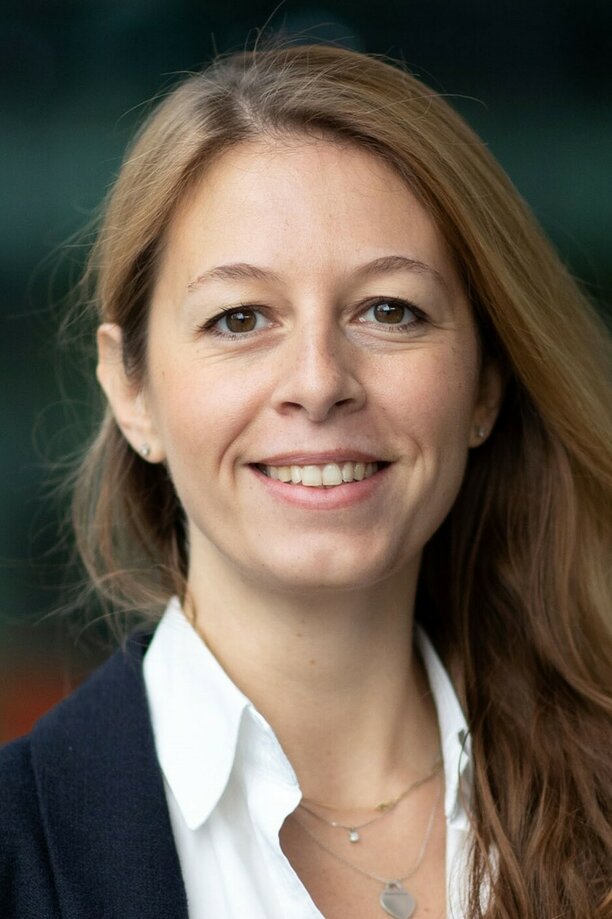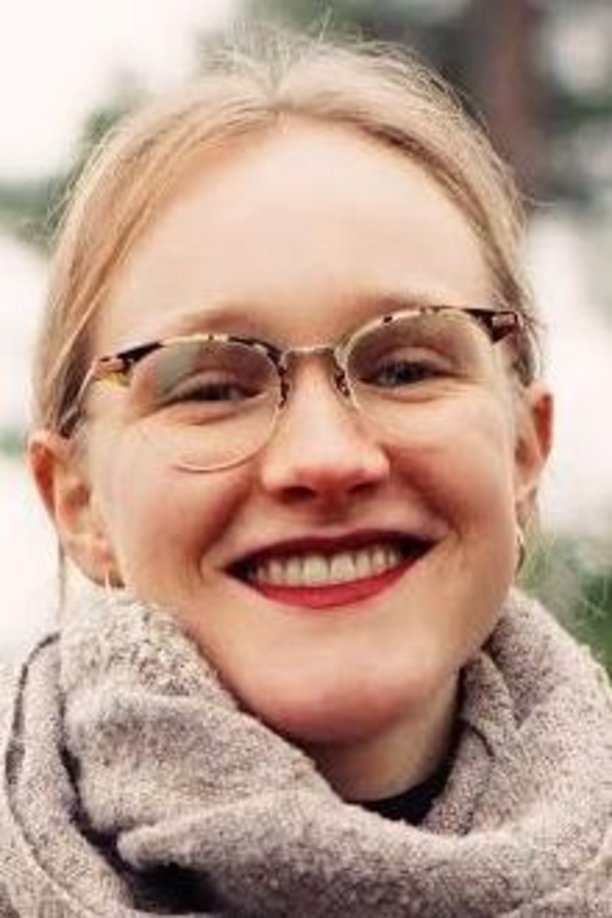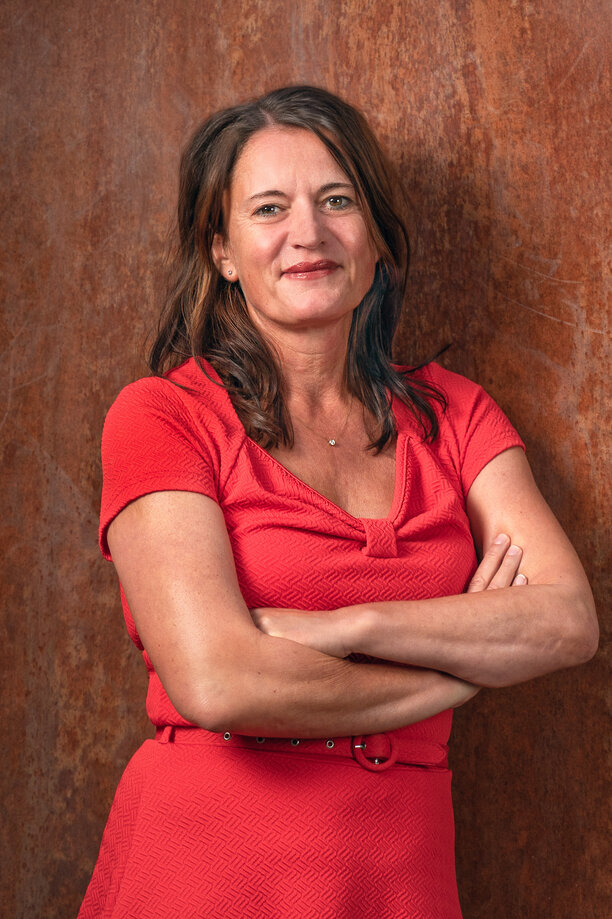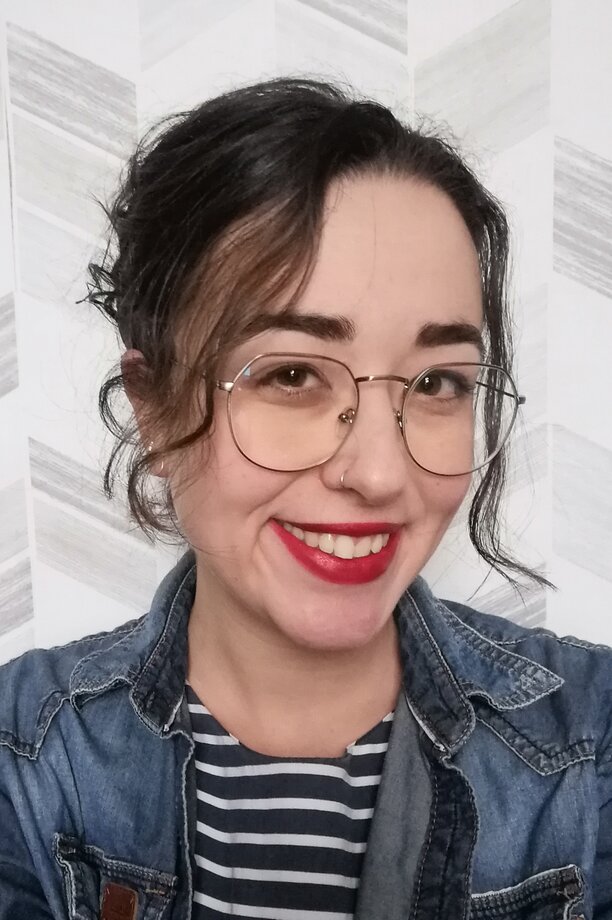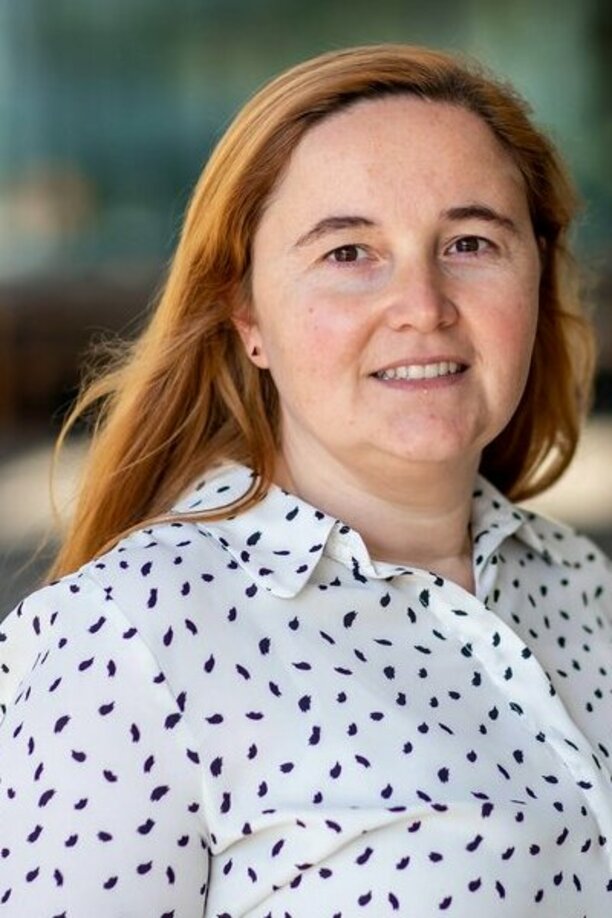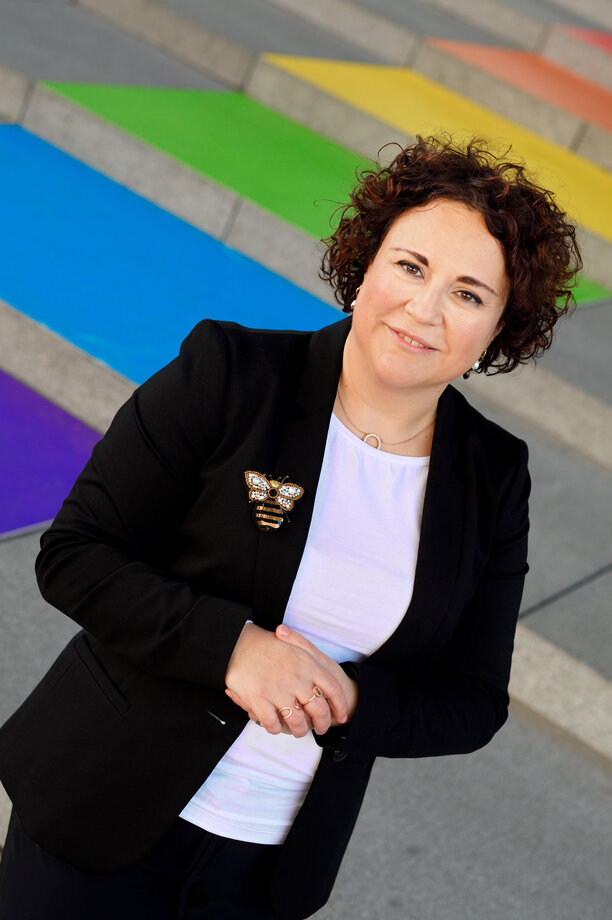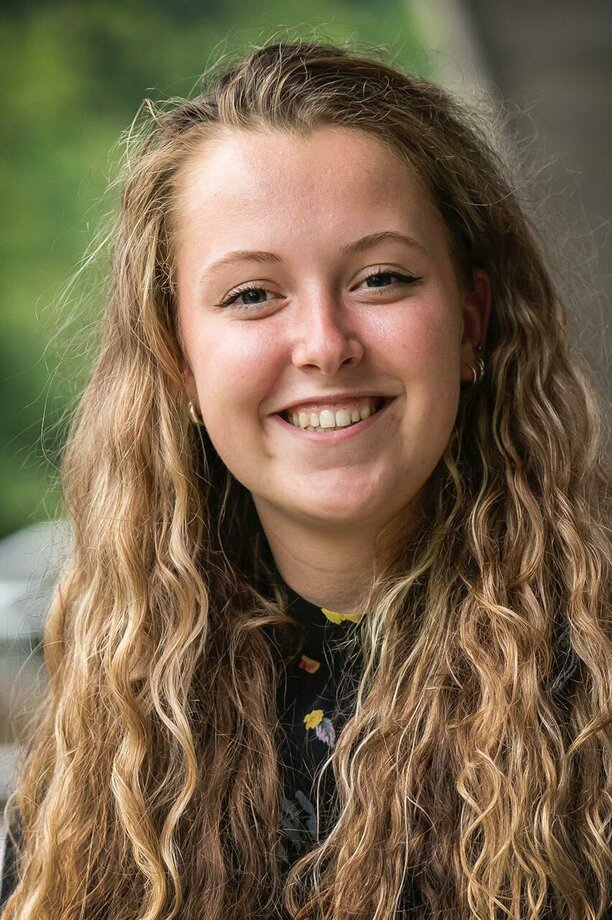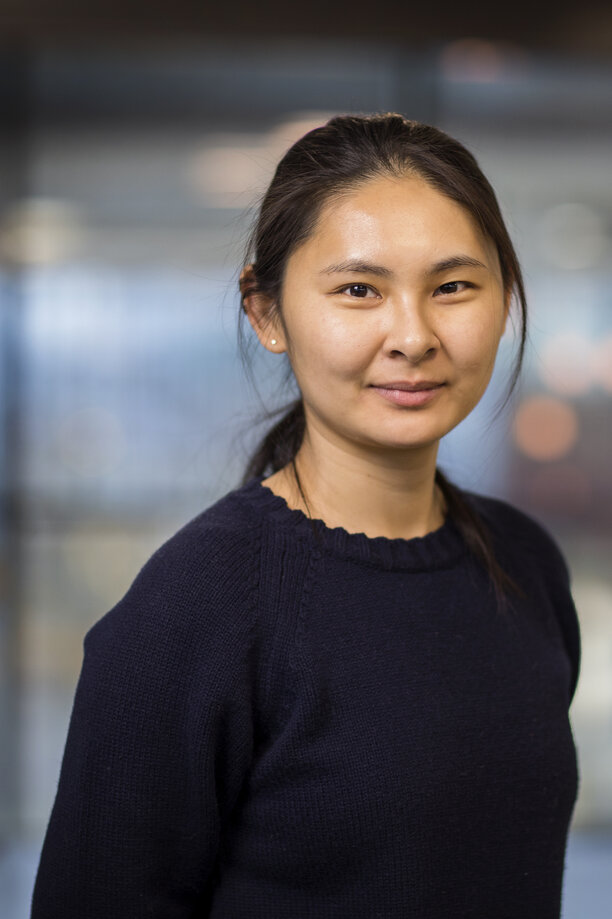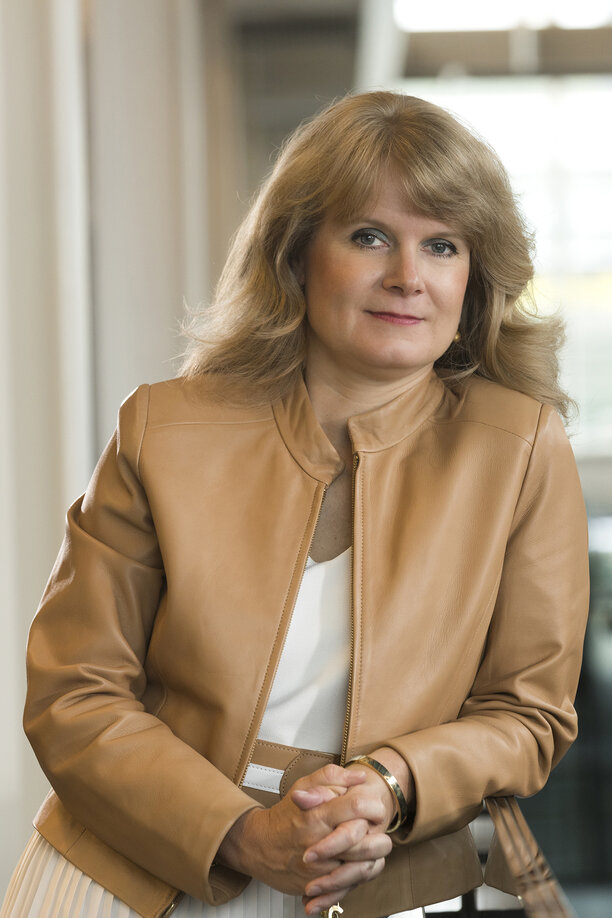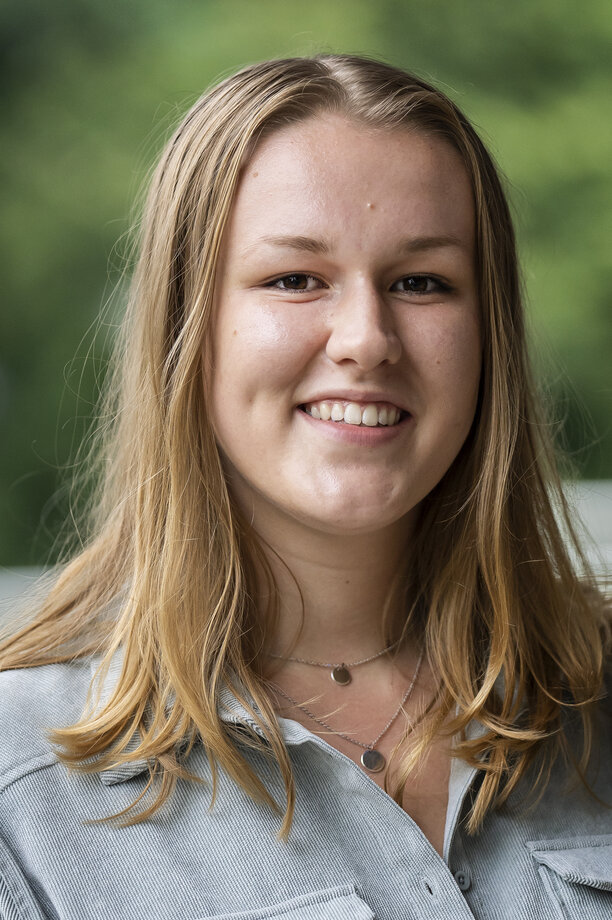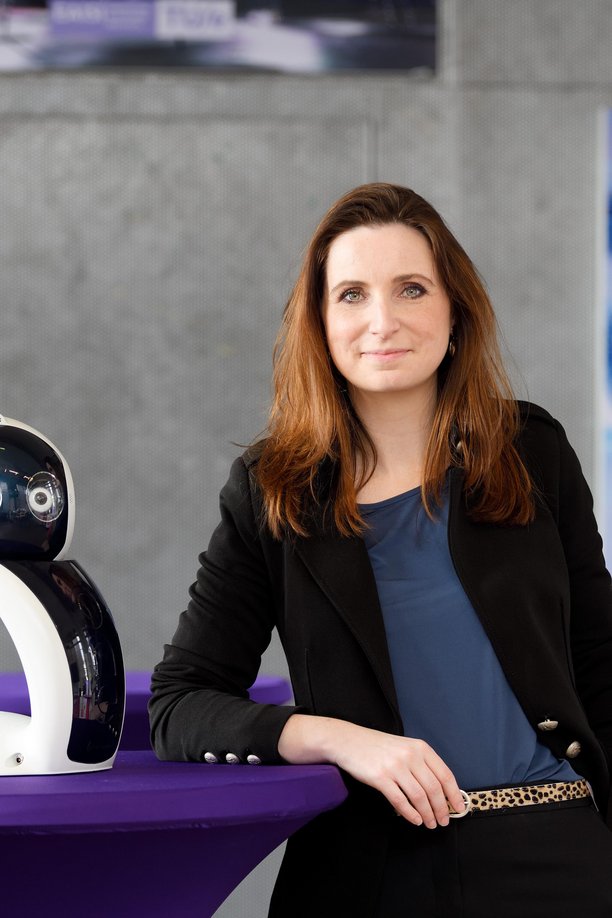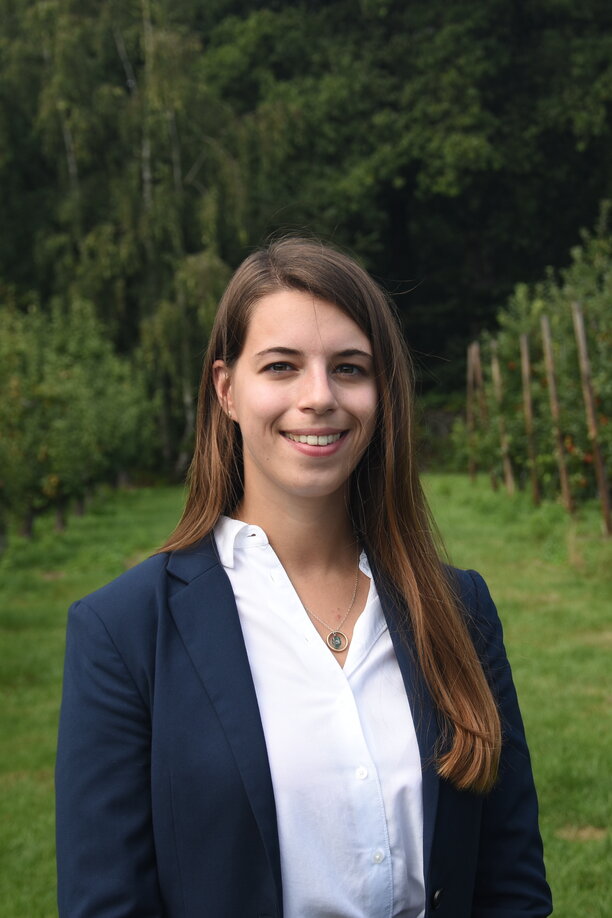Katja Pahnke (53), born and raised in Germany, Managing Director Eindhoven Engine BV (shareholders: TU/e, TNO & Fontys).
Why did you choose a technical study/career?
“At a very young age I showed an interest in all things technical and was passionate about technical subjects. I was very good at them, that encourages you too, of course. In Germany engineers are hugely valued. The country has strong industry, a diverse innovation landscape and striving for excellence makes it easier to choose a technical career.”
Who inspired you to do this?
“I come from a family with social occupations. My father was a teacher and worked with children with behavioral and learning problems, my mom worked with young people in care. As children we were certainly aware of marginalized groups because of the work our parents did. We realized how comfortable our own lives were, and that we could simply choose an occupation that interested us, that inspired us, in which we could grow and develop. And we learned early on to take ownership of our own well-being.
Besides this, it was a very ‘political’ time; we wanted to improve the world. I chose my first job because the company was the market leader in microbiological water and soil remediation. This is also where I learned the ins and outs of the business world and at the age of twenty-one I was given my first managerial role. Here too I learned to have the courage to stand up and take responsibility.
For the rest, I was passionate about being independent and wanted to make sure I kept my freedom to choose future jobs/roles, and so at a later stage I went off and studied Chemical Engineering.”
Why is it important that there are women in technical fields?
“I think that all forms of diversity are important to ‘the best solution’, the critical view and challenging one another. It goes further than gender. And yet often women do have a different type of leadership and do keep ‘the chain’ connected. Ultimately, it's about getting the best out of people, enabling everyone to play to their strengths and ‘to dare to be different’ - that's something I have experienced as a German in the Netherlands. A good mix of competences, background, experience, wisdom foster, I believe, a successful collaboration and a joint result.”
How do you envision your own future?
“In the coming years I want to position Eindhoven Engine as an innovation accelerator and to intensify the collaboration between industry and the knowledge institutions. In this way, I want to contribute to the successful valorization of knowledge, and to maintaining and extending the region's competitive strength. One aspect of this is ecosystem development, another is ‘unlearning’ how we do things when a different way may be better or reach the goal more quickly.
In addition, as a role model, I want to inspire others to take and to create roles with impact. My recent InspiringFifty Deeptech BeNeLux award is a lovely recognition of this endeavor.
And I want to continue to learn, and so I have a taken on a couple of supervisory directorships and advisory board roles, to keep myself sharp.”
What kind of tip would you like to give your younger self?
“Above all, know the things that motivate you, and your core values. Invest in these and organize your life in accordance with them. Take personal ownership - then you will always stand at the helm of your own career. And know what you can do, what you are good at, and let that be seen. Surround yourself with people who complement your competences and excel at something. This way you can - together - make the difference!”
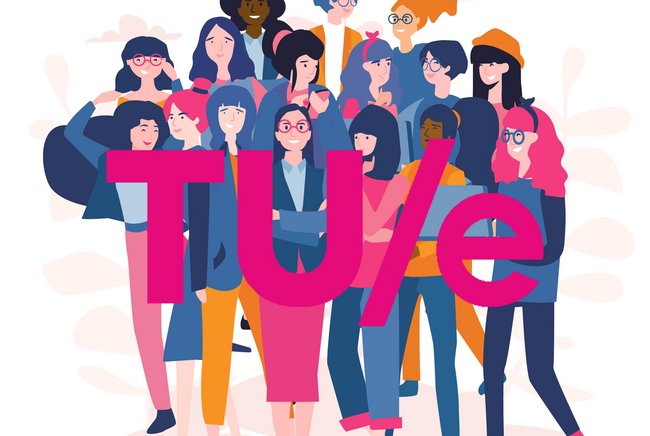
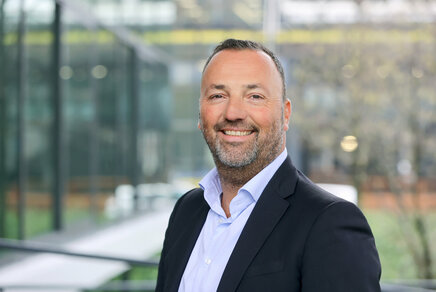

![[Translate to English:] [Translate to English:]](https://assets.w3.tue.nl/w/fileadmin/_processed_/c/f/csm_BvOF_2024_0319_AEV_license_TUe_Dirk_van_Meer_-_CORE_1__c976e259a5.jpg)
